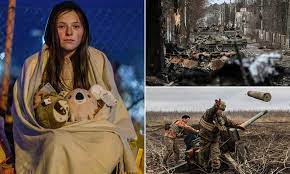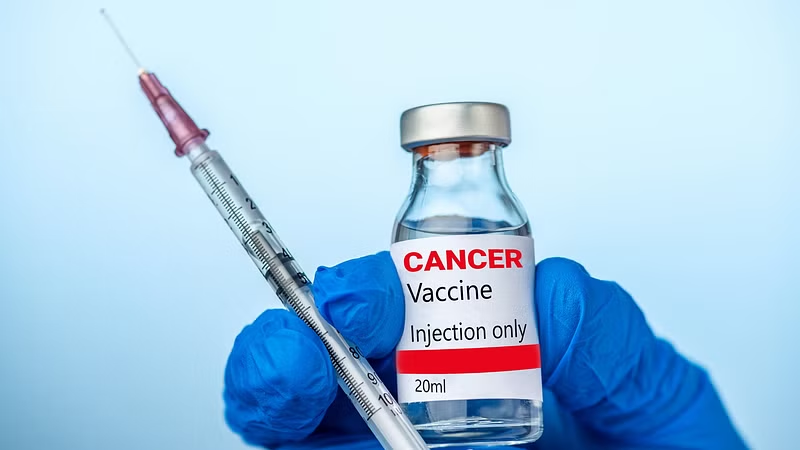Kremlin claims, falsely, that Ukraine is oppressing its Russophone citizens, trying to “Ukrainize” them, and even perpetrating genocide against them.
Talk about calling a kettle black. At the same time, Kremlin pundits keep pushing the narrative that Ukrainians are mere “Russians that forgot who they are”.
Kremlin propagandists spewing conflicting narratives is one thing. But Russian actions in Ukraine have done more to “de-Russify” Ukraine than anything Kyiv could have done.
A significant minority of Ukrainians are Russophones. But likewise, a significant minority speaks exclusively Ukrainian. The vast majority are bilingual, fluent speakers of both languages.
But over the past year of Russia’s aggression against Ukraine, the invaders have done everything they could to inspire hatred and disdain for all things Russian in the people of Ukraine.
This is perfectly evidenced by Ian Birrell article for the Daily Mail, in which he interviewed several citizens of the country that was once broadly considered “fraternal” to Russia (and not just by their respective people, but by the global community), but where it is hard to nowadays find anyone with any warm feelings for the Russians. Even if they are one’s relatives.
Oh, the irony. When Putin launched his invasion of Ukraine, claiming that he is liberating Ukrainians, he probably did not expect what he would achieve. The exact opposite of what he hoped for.
As Birrell writes, the invasion “smashed any lingering fraternal bonds that managed to survive both the Holodomor — Stalin’s famine that killed four million people in the early 1930s — and the long chill of Communism.”
Neither Ukraine nor Russia releases official numbers of their own war dead. Estimates say that Ukraine suffered at least 60,000 KIA. Ukraine daily publishes an estimate of how many Russian soldiers they managed to “liquidate”, and the number is rapidly approaching 150,000. Estimates by various foreign intelligence agencies do not go as far, but neither are they far behind.
The Russians have managed to even the score by killing scores of Ukrainian civilians. Mostly in places like Mariupol, during the lengthy siege, or after capturing territory and enacting genocide on the local populace.
Mass graves in liberated Bucha, Irpin, and Izium leave no doubt as to the nature of the Russian idea of how to “administer” the areas they control.
“Realists” calling for a swift peace settlement, even at the cost of Ukraine giving up the territory already under the control of the Russians, are exactly that. “Realists” in quotation marks.
A “peace” involving any territorial settlement that benefits Russia means Russia could with impunity continue with its genocidal practices.
Even worse, as soon as the Russian military licks its wounds and replenishes its nearly depleted ammunition stocks, be it a year or a decade, it would pounce at Ukraine again, trying to devour the country piecemeal.
Unlike “realists”, Ukrainians and more sober Western leaders, like those of Poland or the Baltic States, whose countries have had more than sufficient experience with Russian imperialism, have no doubts about that.
The second great irony is that the parts of the country that have suffered the most from the Russian invasion, the east and the south, where Russian is the first language of most of the local residents, have been the ones that have suffered the most from the brutality of the invaders.
This was evident when Ukrainian forces liberated large swathes of the Kharkiv region, and later the northern part of the Kherson Region and the Kherson city itself. Elderly people, many of whom were unable or unwilling to evacuate when the Russians rolled in, came out to greet “their boys”, with tears in their eyes.
Welcoming them with what little food they had, and thanking the Ukrainian servicemen for liberating them from the Russians. And the language they expressed their gratitude in? It was in their own native Russian.
For centuries, Ukraine, either in part or as a whole, has been a part of the Russian empire, whether its iteration was a tsarist or a Soviet one. Although Russian culture was dominant, the two influenced one another.
“[Ukrainians] want to drive out any trace of Russian heritage that clings to their culture, demolish any reminders of their historic ties and do everything possible to ensure their future safety by destroying the bloodstained dictatorship over their border,” reads the Daily Mail’s article.
There was a point when nine in ten Ukrainians held a positive view of Russians. The Russian annexation of Crimea and war in the east of the country, where Russian-propped separatists established their so-called “People’s Republics” in the Donetsk and Luhansk Regions have somewhat dampened Ukraine’s love of its eastern neighbor.
Yet, just before February 24, one-in-three Ukrainians still had a favorable view of Russia.













Sure: (quote)”…a positive view of Russians” – – The problem with all the reporting by the main media etc. is – – they keep wiring/saying “Russia did this/did that. RUSSIA did NOT – – PUTIN the psychopath, did. He is not “Russia”. The russian people, like most everyone among us, have no desire to go and get shot dead in a pointless war that brings no benefit of any sort to the ordinary people in either country. The media writers should stop saying “Russia” and instead say “Putin” –